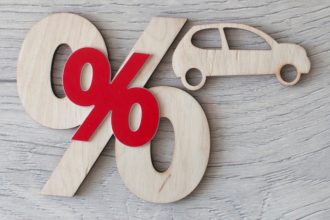5 Tips To Help You Map Your Way Out Of Debt

Working your way out of debt is vital when working towards financial security. Here are five things you can do to make a plan to get out of debt that works.
1. Do A Total Calculation Of Your Debt

If you’re going to make a plan to get out of debt that works, the first thing you need to do is get an accurate idea of what you owe. Unfortunately, many people just blindly dive into a debt plan without getting a full understanding of the situation.
Using only recent statements, write down the names of the companies you owe money to and the different amounts. Writing them down is crucial, so your debts are visual. After you have everything written down, prioritize your debts by paying down the highest interest rate first.
2. Calculate Your Total Income And Expenses

The second step to mapping your way out of debt is getting clear on how much you can afford to pay each month. Calculate what’s left over from your pay checks after you take care of the essentials. Paying off debt shouldn’t comprise your ability to pay your utilities, rent, transportation and other necessities. Planning out how much you have coming in and your expenses will help you identify and eliminate unnecessary purchases.
If you eat out often, you need immediately cut the habit. Spending five to ten dollars a day on food quickly adds up and is extra cash you can be putting down on your debt. Instead of eating out, budget some money for the grocery store. Bringing lunch to work and eating at home isn’t fun or glamorous, but it’s an excellent way to hold on to your money.
3. Be Wary Of Debt Consolidation Loans

If you’re overwhelmed with debt relief, then a consolidation loan is likely to seem attractive. However, it’s important to get the full details on consolidation before making a move. Remember that debt consolidation is essentially another loan that the bank is giving you. You need to take the term and interest rate into consideration.
Generally, debt consolidation is only worth it if you can pay the amount off in full without paying additional interest charges. This means you can’t afford to miss any payments on your consolidation. Never dive head first into a consolidation loan without doing some math.
4. Save While You Pay Down Debt

Most people skip saving when they’re trying to pay down debt. This is a mistake that makes things harder for you in the long run. Saving is an important habit to develop that will help you stay out of debt. If you manage to pay off your debt and end up with no savings, you’re more likely to find yourself in a situation where you’re relying on credit. Even if you’re only putting aside $20, your debt reduction plan needs to include some guidelines for saving your money.
5. Review And Update Your Plan Weekly

The final piece of making a debt reduction plan that works is holding yourself accountable. At the end of the day, no one can tell you how to spend your money except you. Follow up with yourself weekly to see how you’re doing. Weekly check-in’s help to mitigate set backs and gives you a clear idea of what phase of the plan you’re in. By reviewing your plan weekly, you’ll find more opportunities to put away extra cash and ultimately get yourself out of debt faster.
The Art of War says if you know the enemy and know yourself; you need not fear the result of a hundred battles. Getting a clear idea of your financial situation is an essential first step forward to mapping your way out of debt. After you get a clear idea of what you’re facing, the next step is staying disciplined and making consistent efforts to get yourself out of debt. The sacrifices you make today will all contribute to setting yourself up for a better financial future.


